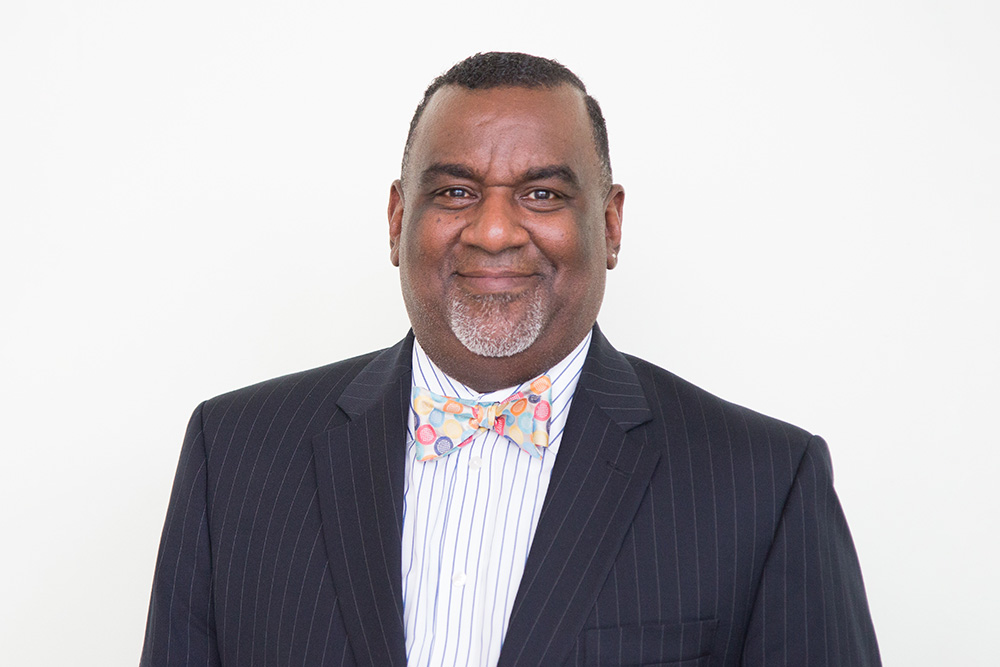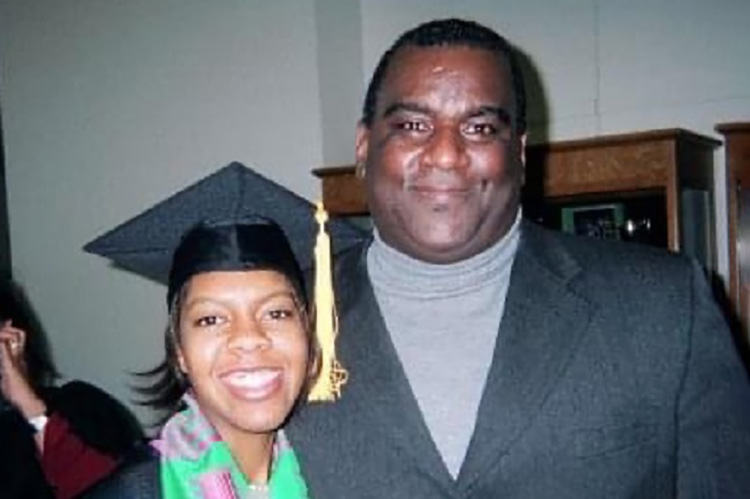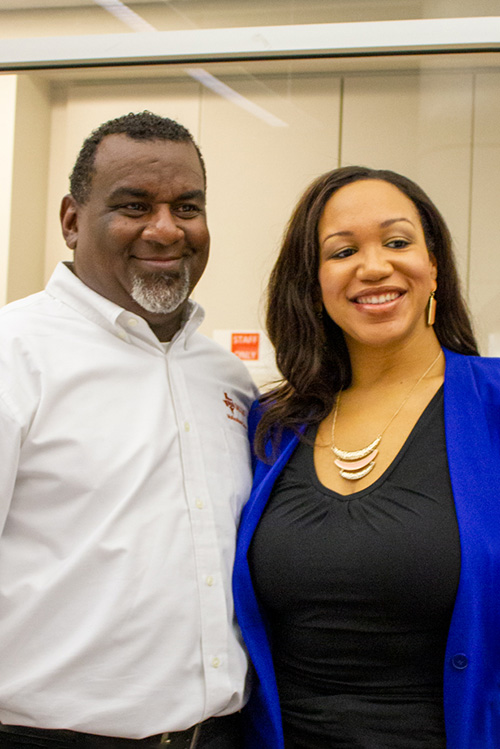Multicultural Center Leader Retires after Career of Lifting Lives
By: Kim Horner | Feb. 16, 2022

During her first semester at The University of Texas at Dallas, Elizabeth Flash Durham BS’05 was so homesick, she planned to move back to Houston. Arthur Gregg, who was coordinator of multicultural services at the time, changed her mind.
“Arthur said, ‘Just stay. Come to a Black Student Alliance meeting. Get involved,’” recalled Durham, who later became the student organization’s president. “Because of his encouragement and because he had an open door, I did stay, and things got a lot better.”

Gregg has helped countless students like Durham thrive during his 23-year career at the University. At the end of January, Gregg, the founding director of the Multicultural Center (MC) and assistant vice president for diversity, equity and inclusion, retired, leaving a deep and long-lasting impact.
“Arthur Gregg has been a leader in many initiatives over the years to make UT Dallas a more diverse, equitable and inclusive campus,” said Dr. George Fair, dean of the School of Interdisciplinary Studies and former vice president for diversity and community engagement (as the office was previously known). “He has impacted countless students’ lives over the past 23 years through his compassion and talent for helping others see and develop their potential.”
Gregg inspired a new generation of higher education leaders, including Durham, who is director of a program at Texas Woman’s University that is designed to increase retention and graduation rates for low-income, first-generation students and students with disabilities.
“I do what I do now because of Arthur. Telling me to stay is the reason I stayed and is the reason I am successful,” Durham said. “That is the work that I aim to do in my role as a professional — to hopefully influence students and make sure they feel supported.”
‘Divine Intervention’
Gregg called it “divine intervention” that UT Dallas hired him in 1998. He had been working for two years in a similar role at the University of Houston, his alma mater.
“It was something I had a calling to do, and that was to work with students of color, primarily African American students, having been a Black student at a predominately white school as an undergraduate myself,” said Gregg, who also was a first-generation student. “I wanted to be that kind of person on campus that so many people were for me.”

Gregg was instrumental in establishing the MC, which opened in 2003 to provide cultural programs, educational resources, leadership opportunities and support services to increase diversity at the University. Students who hung out in the center’s lounge, which featured living room furniture and a TV, often ended up in Gregg’s office, which he decorated with movie posters from films starring Black actors.
“It started with a student coming in one day, and I could tell they wanted to talk but didn’t know where to start,” Gregg said. “The conversation started based on the movie poster, and the conversation led to, ‘This is what’s going on.’”
Gregg was a role model who helped students see and develop their potential, said Bruce August Jr. BS’07, assistant director of marketing and programs for the MC, who hung out at the center as a student.
“One thing he would always tell us is, ‘You can come talk to me about anything, and nothing you say is going to surprise me. So, say what you need to say so we can get you the help or support you need,’” August remembered. “I’ve seen so many students who wouldn’t have made it without him.”
“He has impacted countless students’ lives over the past 23 years through his compassion and talent for helping others see and develop their potential.”
Dr. George Fair, dean of the School of Interdisciplinary Studies
‘Father Figure’
As a student, Dr. Michelle Buggs BS’06, associate dean for academic affairs at Collin College, hung out at the MC and worked as a Multicultural Peer Advocate.
“Arthur played a huge role as a father figure to me in college — the kind of father figure I needed — holding me accountable and reminding me of my power as a woman, as a Black woman,” Buggs said. “Going to UTD, where I was all of a sudden around people who were very proud to be Black, proud to be a man or woman, proud to be Greek, proud to be in college — he cultivated that approach to becoming an adult and future professional, of being proud of what you’re doing, who you’re around and what you’re planning to achieve.”

Gregg delivered compassion, wisdom, accountability and the occasional stern eye, like the time he heard an inappropriate conversation in the lounge.
“He came out of his office, and all he had to do was give one look, and we were like, ‘OK, next topic,’” she said. Buggs remembered the time Gregg let her cry in his office for 10 minutes after doing poorly on the graduate school entry exam. Once the tears stopped, he asked if she was OK and then told her, “Go on, and do what you need to do.”
“That was such a profound moment for me,” Buggs said, who went on to earn master’s and doctoral degrees.
August, a computer science major, said he changed his career plans because of Gregg. After he graduated, August interviewed with Gregg for a job at the MC.
“He asked, ‘What do you plan to bring to this role?’ I said, ‘Everything I know. Everything I’ve been taught — to give back to the students in the way that you and all the other people here have given back to me,’” August said.
Neuroscience senior Patrick Nnoromele said he is thankful for the support he has received from Gregg and the staff at the MC. He is a Eugene McDermott Scholar, National Merit Scholar, Goldwater Scholar and Student Ambassador who will graduate in May.
“My experience with UTD has been amazing, and I will continue to be one of its biggest cheerleaders.”
Arthur Gregg
“Mr. Gregg has gone out of his way to invest in my professional and personal growth throughout all four years of my college experience. I am grateful for his kindness and dedication to student success, and I wish him the best as he begins his next chapter,” he said.
Dr. Yvette E. Pearson, vice president for diversity, equity and inclusion, thanked Gregg for his leadership and for the foundation he laid with the MC.
“Before joining UT Dallas, I learned that programming at similar centers at some of the top universities in the country were modeled after what Arthur and our MC team have built,” Pearson said. “As we search for a new director, we are looking to build on that foundation and the innovation behind the MC’s reputation.”
Although he has retired, Gregg said he plans to stay connected with the University and will continue to serve as board chair of the Dallas nonprofit Project Still I Rise Inc., which partners with the University on projects such as the African American Male Academic Bowl competition for middle school students.
“UT Dallas has been my family for 23 years,” Gregg said. “My experience with UTD has been amazing, and I will continue to be one of its biggest cheerleaders. I will continue to recruit and ask students I meet, ‘Have you thought of UTD?’”
Media Contact: Kim Horner, UT Dallas, 972-883-4463, kim.horner@utdallas.edu, or the Office of Media Relations, UT Dallas, (972) 883-2155, newscenter@utdallas.edu.





